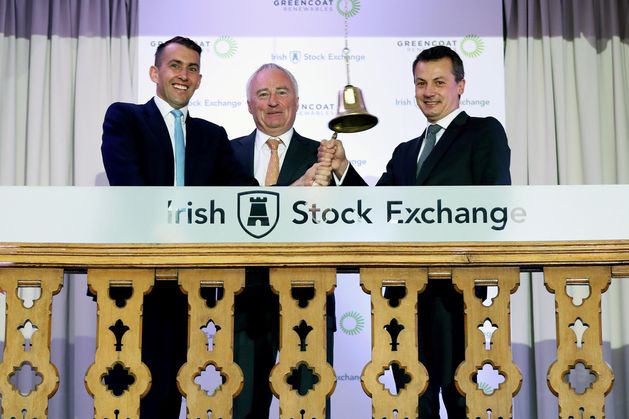For businesses that are scaling up, he has introduced a new tax relief for the expenses they incur in getting listed on the Irish or a European stock exchange. This will be subject to a cap of €1m.
“To further support Irish business to grow and scale, in the coming year my department will, subject to state aid considerations, introduce a stamp duty exemption,” Mr Chambers said in his budget speech.
‘This is an important step in encouraging Irish companies to scale through the market’
“This measure would enable Irish SMEs to access equity via financial trading platforms designed to support their funding needs.”
Reacting to the announcement, John Mullane, chief investment officer of Cantor Fitzgerald Ireland, said: “The relief for expenses incurred in connection with a first stock market listing will make it more likely that companies will choose to list on the Irish stock exchange.
“This is an important first step in encouraging more indigenous companies to scale through the public market.”
Mr Chambers said the Department of Finance had done a review of three schemes that are designed to encourage people to start businesses, and had decided to extend all of them for two years, bringing them up to the end of 2026.
He has doubled the amount on which an investor can claim relief under the Employment Investment Incentive from €500,000 to €1m, and increased the relief available under the Start-Up Relief for Entrepreneurs scheme from €700,000 to €980,000.
In order to cultivate the ecosystem of angel investors – who provide support to start-ups at an early stage – Mr Chambers said he was amending the capital gains tax relief to provide for an increased lifetime limit on gains. This will go from €3m to €10m. The relief scheme is due to start shortly.
There is to be an increase in the first-year payment threshold in the research and development (R&D) tax credit, from €50,000 to €75,000.
In another measure to support start-ups, the section 486C relief from corporation tax has been enhanced, with a new method for companies to qualify. This will extend the scope to small, owner-managed start-ups, Mr Chambers said.
“As a further measure to support small business, I have decided to raise the Vat registration thresholds that apply for the supply of goods and services, which are currently €80,000 and €40,000 respectively, to €85,000 and €42,500 respectively,” he added.
Martina Fitzgerald, the CEO of Scale Ireland, said: “We welcome the continued strong focus on Irish tech start-up and scaling companies in Budget 2025.
“The cash flow of early stage companies will be directly affected by the increased cash refund in the first year of the R&D tax credit, and we strongly welcome a further review of this next year. We also also welcome the commitment to look at wider employee-share-option schemes next year.”
The lobby group for city businesses said a Vat reduction for retail should have been prioritised
Paschal Comerford, tax director at Grant Thornton, said the changes in R&D credit will be a welcome boost to small businesses doing such activities, but added that it was “unfortunate” that the rate was not increased beyond the 30pc level, as had been proposed.
Ian Collins, EY Ireland’s head of innovation incentives, also said the increase in first-year refunds was welcome, for the SME sector in particular, and offered much-needed accelerated cashflow.
Noting the minister’s announcement of a review of the R&D tax credit scheme this year, he said such processes often result in legislative improvements that would help boost the attractiveness of Ireland as a hub.
“We welcome this intention,” he said, “and will play an active role in contributing to this review.”
Dublin Town, the lobby group for city-centre businesses, said a Vat reduction for retail should have been prioritised over reductions to other taxes.
Richard Guiney, its chief executive, claimed the Finance Minister had missed an opportunity to support a struggling hospitality sector.

